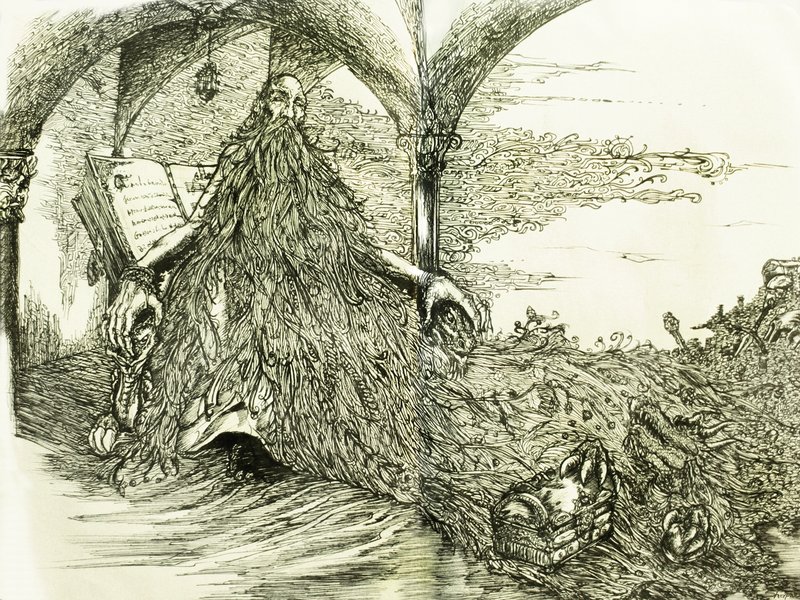Are you an old-time DM or a new one? If you’ve only recently started enjoying Dungeons & Dragons as a DM or another game as GM then this list of compiled wisdom might be of benefit for you. On the other hand, if you’ve been in the hot seat for years now is there a single bit of advice you think has been shamefully missed out? If so then add in your wisdom in the comments below.

What single piece of advice would you give a new DM?
- Keep it fun!
- You are the DM but you can be wrong.
- Ask your players what they would like to see in the game.
- Roll with it.
- Rules are suggestions.
- Adjectives are mandatory.
- The story trumps everything else so keep it moving and adjust as necessary to keep it engaging.
- Run a game that you think you’d have fun playing in.
- Share your expectations at the beginning.
- Take note of what your players do and who they talk to.
- Always keep a pen and paper on you to write down great ideas that strike you at odd moments.
- You have The Final Word!
- If the players are not all having fun, change what’s getting in the way of someone’s fun – even if that thing is a rule.
- You are on the same team as the party.
- The rules are what make the game consistent and fair. Changes need to be very carefully considered, and should never be sprung on players like a trap.
- Preptime should be mostly used for reusable assets, not disposable plot points that will likely get skipped when the players do something unexpected.
- A concise Campaign Primer document outlining what players should about the world before building characters and house rules is worth its weight in gold.
- Say “Yes”.
- Be prepared to change a decision. But rarely.
- Remember that it’s the players’ story, too.
- Plan for everything, assume none of it will happen.
- Save everything. Notes, maps, characters, adventures, props, everything!
- Play as many different games as possible. There are other game systems to try.
- Use the players’ backstories to mine for scenarios and don’t rely on padded combat to inflate your game artificially.
- Get a thesaurus. Never use “very” in your descriptions. Details!
- Never let ’em see you sweat. You planned this all along, and they’re none the wiser if you didn’t.
- Have some pre-made encounter and loot tables ready to go.
- Give each player equal attention regardless of how introverted. Even if their choice is to go along with the extroverts, giving each player their even slice of the story makes for the best novel.
- Moderate don’t dictate.
- Until a plot detail is shown to the players it can be changed freely. Especially if it will make the game better if you do.
- Don’t write a story for your player characters. Write a story for your villains.
- Season 0 solves so many problems before they become problems.
- Understand that the running of the game is about trust. The players have to trust that the DM is playing ‘fair’, and the DM has to demonstrate that the world that’s being laid out is ‘real’ and has consequences and rewards for actions taken or not.
- Talk to your players if YOU didn’t have a great time.
- Alcohol is a great lubricant for the game but too much makes the game a mess.
- Get feedback.
- Keep problem players away from your table.
- Take all advice you learn from the internet with a grain of salt.
There are hundreds of combined years DM experience here and learning from the experience of others is the second best way to get to grips with stuff. The best way? To try and fail yourself.
Where did all this good advice come from? We can thank all the many contributions to this discussion thread on Facebook which I’ve attempted to curate. Please note the last one.
There’s lots of wisdom in the experience of these old GMs, but the one I’ll hold up as my favourite is the importance of asking your players what they want from the game. You can make it an informal chat after the game, or a more formal debrief or you could even make it part of the game system and have players declare which plot points they’re most interested in exploring next.
What do you think?
Image by Paolo. Creative Commons.


